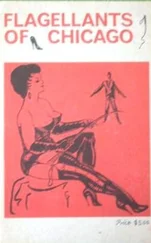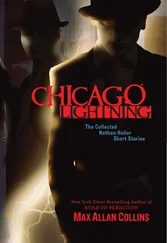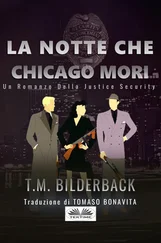General Manawi smiled and said, “We can do it without taking the least responsibility. Some of my men in civilian clothes will slip among the demonstrators and discipline them. It would all appear to the media like an ordinary brawl.”
The American officer threw him a disapproving glance and a dismissive smile, then signaled his refusal with his hand and moved away. General Manawi was very angry at the arrogant American officer’s behavior but of course wouldn’t cause any problems with him. He had learned from experience that nothing worried the president more than having a problem with any American, no matter how lowly his position. There was a saying that he often repeated: “A ruler who challenges the American administration is like a fool who puts his head in a lion’s mouth.”
The story of the president’s information secretary, Dr. Na’il al-Tukhi, was still fresh in people’s minds. He had had a quarrel with an employee of the American embassy about the right of way on one of the streets in Maadi. This was an ordinary quarrel that took place dozens of times every day in Cairo, but it had developed into name-calling in English, which so enraged Dr. al-Tukhi that he pushed the other man in the chest. The American employee had complained to the American ambassador, who had called the president’s office to report the incident. The following day the American embassy received an official reply to the effect that the president was very disturbed by what happened, and that he had ordered an immediate investigation. He then decided to terminate the employment of his information secretary as punishment for his irresponsible action.
The demonstrators grew more enthusiastic and in Arabic and English shouted in unison in a thunderous voice, “Down with the president.” General Manawi kept observing them in exasperation from the other side of the wide street then ordered an officer in civilian clothes to film them with a video camera bearing the logo of a fictitious television news service, intending to send the footage to State Security to identify and pursue them.
The crescendo of the shouts coincided with the impending arrival of the president. Soon the procession appeared in the distance, approaching gradually until it came fully into view: the president’s huge bulletproof black Mercedes guarded by two armored cars to the front and rear. General Manawi let loose a shout that wailed like a cheerless warning siren. “Aaaatention!” All the officers tensed up and took up their positions, brandishing their weapons in every direction to guard against any eventuality. The procession slowed down then stopped in front of the entrance, and instantly, the bodyguards jumped and formed a full circle several meters in diameter around the car, observing the road from all directions without appearing in the photographs. They were huge men with shaved heads and tiny earpieces, pointing their guns at an enemy whose appearance was anticipated at any moment. The chief of protocol rushed toward the presidential car, bent toward it, and opened the door. Soon thereafter the president appeared slowly and haughtily, as if he were a crowned king, his face displaying that famous cheerless smile that, a quarter century earlier, he had deemed photogenic and so never changed it. He was wearing a very elegant light gray suit, a blue-and-white-striped necktie, and shiny Italian shoes with an eye-catching golden buckle on the side. Anyone seeing the president face-to-face, however, despite the awe surrounding him, would inevitably feel that his presence was somehow contrived. His hair, dyed jet-black, was rumored to be (in whole or in part) one of the best hairpieces available in the world. His complexion was exhausted by all the scraping, sanding, and daily ointments he used to give it a youthful appearance. His face was covered with layers of fine makeup so he would appear younger in photographs. That glasslike, cold, detached, and distant presence, devoid of any traces of dust or sweat, as if it were sterile, left in those who saw the president an uncomfortable, raw feeling like that experienced by viewing babies immediately after their birth, featureless lumps of flesh still displaying the stickiness of the womb.
The president, slowed down by his seventy-five years, had a diminished level of concentration and was noticing things around him a little late. So he looked at the other side of the road and waved to the demonstrators, and when their shouts grew louder he realized what was going on and turned toward the consulate’s entrance. He swaggered along and reached for his jacket buttons, feeling them. (This gesture has stayed with him since he replaced his military uniform with civilian clothes and discovered that his buttons came undone without his being aware of them.)
The president began to shake hands with those receiving him in a predetermined order: the Egyptian ambassador to the United States, Egypt’s consul in Chicago, Safwat Shakir, whose face looked calm because everything was going according to plan, and then members of the embassy staff according to seniority. At the end of the line Ahmad Danana looked as though he was attending a fancy dress party. He was wearing a blue Christian Dior suit that he had bought especially for the occasion and which cost him (together with the shirt, the socks, and necktie) fifteen hundred dollars that he paid for gladly with his credit card, keeping the receipts as usual, hoping that he could return them afterward and get his money back (as he had done with his wedding suit). He realized that meeting the president might change his life. He had heard of many prominent personages in the state whose careers were made under similar circumstances. They met the president, he liked them, and their faces made an impression on his magnanimous memory, and so he gave them important posts at the earliest change in cabinets. It would indeed be a turning point in which the smallest details acquired maximum importance: a missing button or one that was loose, or a crooked necktie or shoes that were dusty or not sufficiently shiny — any insignificant detail might give the president a bad impression and negatively affect Danana’s future. Another reason he took such care of his appearance was his attempt to prove to himself that he had completely recovered from what his wife Marwa had done. When he got up last Tuesday, he couldn’t find her. He went through the apartment in a daze, still sleepy, until he finally noticed a piece of paper on the refrigerator door in the kitchen, written hastily in large, uneven letters: “I left for Egypt. My father will contact you for divorce proceedings.”
Danana exerted a great effort to absorb the shock. He said to himself that he had never been happy with her. He could, undoubtedly, find dozens of women better than she. Yes, he would divorce her as she requested, but she should pay the price of the misery she cost him (and his expenses as well). A few days after she ran away, Hagg Nofal called him and started talking about kismet and how the most loathsome permitted thing in God’s view was divorce. Danana replied that Marwa had run away from their home and caused him a scandal, and that he needed time to get over the crisis emotionally. Then he promised to meet Hagg Nofal next time he was in Cairo, and to sit with him man to man to discuss their respective demands. He deliberately used the word “demands” to prepare him for the idea that he was going to demand money. Of course he would demand money: his life, his name, and his reputation were not little toys in the hands of Madam Marwa to play with at will. He made up his mind (motivated by greed disguised as anger) to demand from Hagg Nofal one million Egyptian pounds in return for divorcing his daughter. A million pounds for Nofal was nothing. Danana would purchase a certificate of deposit in the National Bank, and that should fetch him a respectable annual return. He rehearsed in his head: you’ll pay, Nofal, against your will. If you refuse or if your daughter sues me for khul‘, then I’ll show you my other face. I will sully her reputation, you dog, Nofal, everywhere, in such a way that she will never marry ever after. I’ll say that I didn’t find her to be a virgin.
Читать дальше
Конец ознакомительного отрывка
Купить книгу












